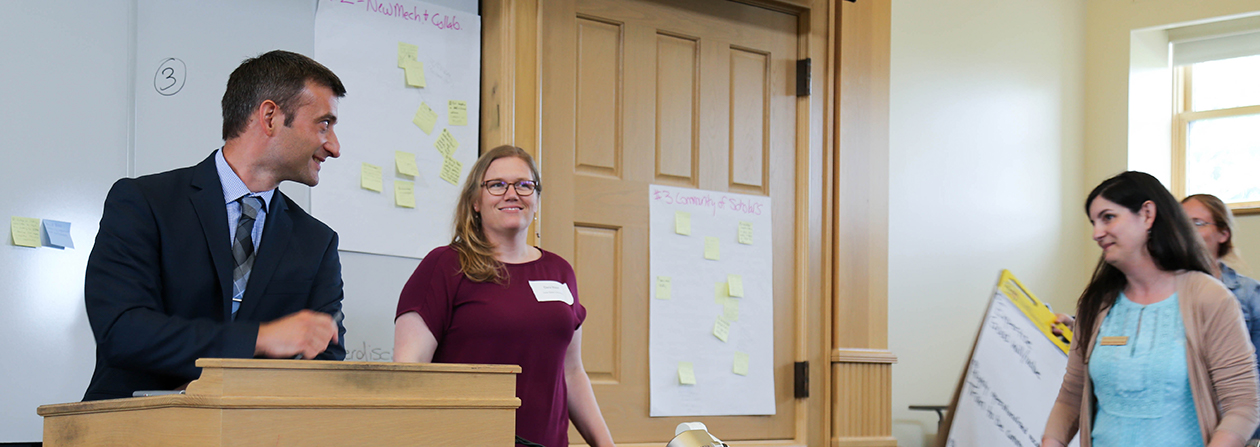
Interdisciplinary Work
With roots in technical and agricultural journalism, the Greenlee School has a strong tradition of embracing an interdisciplinary approach to research.
Aligning with Iowa State’s institutional land-grant mission, faculty began collaborating with cross-campus colleagues in Agriculture and Home Economics, among other departments and units, in the 1970s. A focus on interdisciplinary collaboration and areas of convergence remains strong today as Greenlee faculty continue to leverage tools and theories from multiple disciplines, including political science, history, women’s and gender studies and the STEM fields.
Through grant-funded projects and programs, Greenlee scholars work closely with research colleagues from disciplines, including:
- agriculture education studies
- agronomy
- computer science
- ecology, evolution and organismal biology
- English
- geological and atmospheric sciences
- natural resource ecology and management
- political science
- sociology
Some Greenlee faculty also hold dual appointments with other units in Iowa State’s College of Liberal Arts and Sciences, including the Carrie Chapman Catt Center for Women and Politics and the Department of English. Others were hired as part of the university’s strategic efforts in targeted research areas, such as sustainability and big data and technology.
SciComm@ISU
The SciComm@ISU Project is an interdisciplinary research team that aims to enhance collaborative research on, education for, and the practice of public science communication. It includes several Greenlee faculty members. Joining with partners across campus, the group holds internal colloquia, organizes an annual lecture by an invited scholar or practitioner and supports the science communication aspects of funded STEM projects. The group also hosts the Iowa State Science Communication Summer Symposium Series, which has brought more than 120 national and international scholars and practitioners of science communication from across the natural sciences, social sciences and humanities to present and discuss topics relevant to science communication.